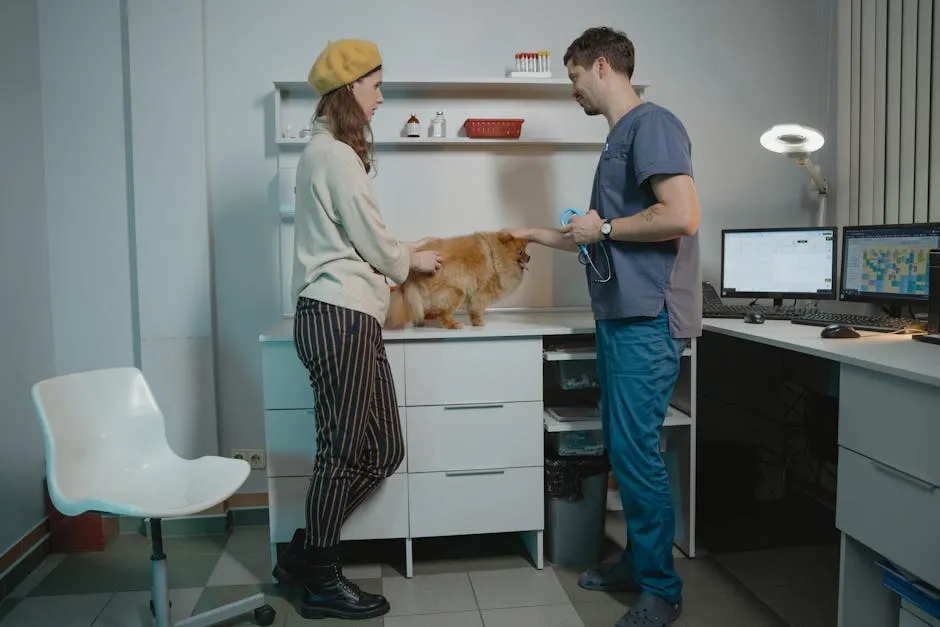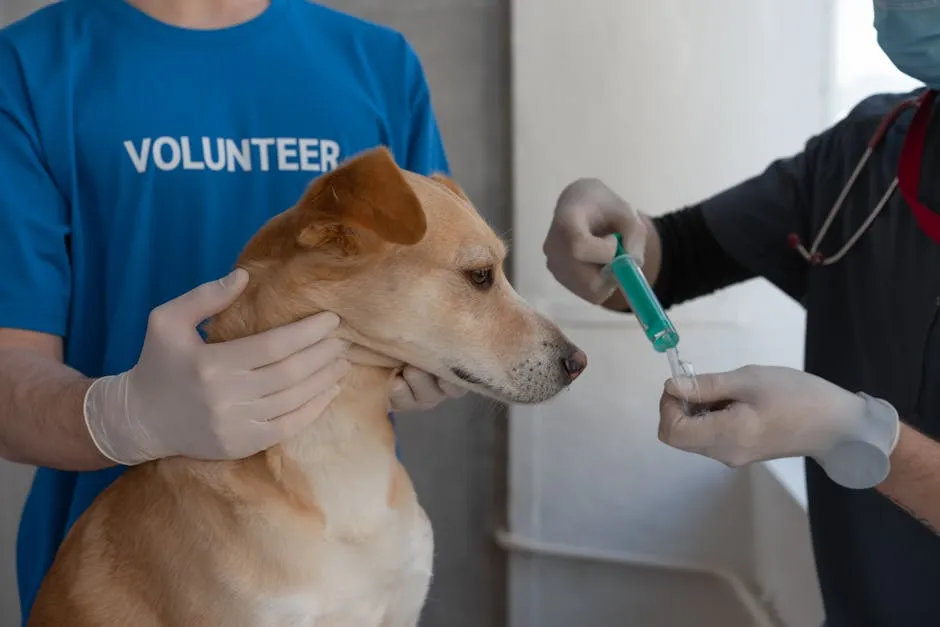Introduction
In the world of canine health, few medications have garnered as much attention as metronidazole—also known by its brand name, Flagyl. As a dog owner, the mere mention of this antibiotic can evoke a mix of hope and concern. Hope because it’s often a go-to treatment for pesky gastrointestinal issues, and concern because, well, it’s a medication, and we all know how that story can go. This article will explore everything you need to know about metronidazole for dogs, from its uses and dosages to potential side effects and alternative treatments.
Metronidazole is a powerful ally in the fight against various infections. It acts as both an antibiotic and an antiprotozoal, targeting the nasty little bugs that can wreak havoc on our furry friends. This medication can come to the rescue when your dog faces issues like diarrhea or infections caused by certain parasites. But, of course, with great power comes great responsibility.
Knowing how to use metronidazole safely is crucial. It’s not just about popping a pill and hoping for the best. Each dog is unique, and factors like weight, age, and overall health can affect how they react to medications. That’s why consulting your vet before starting any treatment is essential. They can guide you on dosages, potential interactions, and signs to watch for.
Get ready to explore the nitty-gritty of this medication and discover how it can help your furry friend bounce back to health! With the right knowledge and care, metronidazole can be a valuable tool in your dog’s healthcare arsenal.

Summary of Key Points
This article will cover various essential aspects of metronidazole, including:
- What is Metronidazole?: An overview of the medication, its classification as an antibiotic and antiprotozoal, and its common brand names.
- Uses in Dogs: The specific conditions metronidazole treats, such as Giardia infections, inflammatory bowel disease (IBD), and bacterial infections.
- Mechanism of Action: How metronidazole works on a cellular level to combat infections and inflammation.
- Administration Guidelines: Dosage recommendations, forms of the medication, and tips for effective administration.
In essence, this guide aims to equip dog owners with the knowledge needed to make informed decisions about metronidazole. With this information, you can approach your veterinarian with confidence and ensure your pup gets the best care possible.

Potential Side Effects
Metronidazole can be a miracle worker for dogs, but it’s not without its quirks. Most dogs tolerate the medication well, but side effects can still pop up. Commonly, you might notice gastrointestinal issues. Nausea, vomiting, and diarrhea can occur. Your pup may also show signs of fatigue or loss of appetite. If you notice excessive drooling or gagging, that’s another red flag.
On the rarer side of things, neurological symptoms may arise. This could include tremors, seizures, or difficulty walking. Yikes! If your dog starts acting like they’ve had one too many spins in the dog park, it’s time to call your vet. Liver toxicity is another serious concern, with symptoms like jaundice (yellowing of the skin or eyes) or blood in urine. Always keep an eye on your furry friend and report any odd changes to your veterinarian.

To ensure your dog stays comfortable during their recovery, consider using a Dog Bed for Comfort. After all, a well-rested dog is a happy dog, and they need all the comfort they can get while recovering.
Precautions and Contraindications
Not every dog should be a metronidazole superstar. For instance, pregnant or nursing dogs should steer clear of this medication. It’s also a no-go for pups with pre-existing liver disease or those that are very young. If your pup has a history of seizures or is on certain medications, talk to your vet. Metronidazole can interact with drugs like phenobarbital and warfarin, which could lead to unwanted complications. Your vet will know best if your dog’s current meds could be problematic.

Additionally, keeping a Dog First Aid Kit handy can be a lifesaver in emergencies. It’s always better to be prepared, right?
Alternative Treatments
If metronidazole doesn’t sound like the right fit for your pup, don’t fret! Alternatives are there to save the day. Tylosin is often used for gastrointestinal infections, and fenbendazole can tackle Giardia, another pesky parasite. Probiotics and dietary changes can also support gut health without the side effects. Always consult your veterinarian about these alternatives to find the best path for your furry friend.

For dogs with sensitive stomachs, consider adding Dog Treats for Sensitive Stomachs to their diet. Your furry friend will thank you for the tasty yet gentle goodies!
Conclusion
In the grand scheme of canine health, metronidazole is a powerful ally—when used correctly. Always consult your veterinarian before administering any medication to ensure it’s the right choice for your dog. They will guide you through the dos and don’ts, helping you avoid any bumps along the way. After all, your pup deserves the best care possible!

Other Uses
Metronidazole isn’t just a one-trick pony; it has some impressive capabilities! One notable use is in treating central nervous system infections. This medication has a unique ability to penetrate the blood-brain barrier. This barrier is like Fort Knox for the brain, shielding it from potential invaders. But metronidazole can bypass that security, making it effective for infections that affect the brain and spinal cord.
When your pup faces a central nervous system infection, metronidazole steps in like a superhero. It fights off those pesky anaerobic bacteria lurking where they shouldn’t be. This ability to cross into the brain tissue allows it to assist in treating conditions that other antibiotics might struggle with. So, if your furry friend is facing a serious infection, metronidazole might just be the secret weapon needed for recovery.
How Metronidazole Works
Metronidazole operates like a ninja in the body, stealthily disrupting bacterial DNA. When it encounters anaerobic bacteria, it slips in and inhibits their ability to reproduce. It targets the bacteria’s DNA repair processes, leaving them unable to survive and multiply. This clever mechanism makes it effective against various infections.
But metronidazole doesn’t stop there! It’s also effective against protozoal infections. Protozoa, like Giardia, can wreak havoc in your dog’s intestines, leading to diarrhea and other issues. Metronidazole steps in to target these sneaky parasites, ensuring your pup can get back to their happy, tail-wagging self.
Overall, metronidazole’s dual action makes it a prized medication for treating both bacterial and protozoal infections. It’s like having a trusty sidekick ready to tackle multiple foes at once!
Dosage and Administration
Dosage Guidelines
When it comes to dosing metronidazole, it’s important to tailor the dosage to your dog’s specific needs. The standard dosage typically ranges from 10 to 25 mg per kilogram of body weight. For example, a 10 kg dog might receive between 100 to 250 mg, depending on the severity of the infection. Your veterinarian will consider factors like the type of infection and your dog’s overall health to determine the best dosage.
It’s essential to remember that some conditions may require adjustments to the dosage. Dogs with liver issues or those taking certain medications might need a lower dose. Always consult your veterinarian for the most accurate dosing tailored to your pup’s individual health needs.

Administration Tips
Administering metronidazole can feel like a bit of a balancing act, but here are some handy tips! You can give this medication with or without food, but giving it with food may help reduce gastrointestinal upset. If your pup is a picky eater, consider mixing it with their favorite treat or food to make it more palatable.
If you happen to miss a dose, don’t panic! Give the missed dose as soon as you remember. However, if it’s close to the time for the next dose, skip the missed one and resume your regular schedule. Just avoid giving two doses at once, as that could lead to potential complications.
Now, let’s talk about storage. To maintain metronidazole’s efficacy, store it in a tightly sealed container at room temperature, away from light and moisture. If you have liquid forms, make sure to refrigerate them and shake well before use. Proper storage helps ensure that your dog receives the full benefits of this medication when it’s time for their next dose.

Side Effects of Metronidazole
Metronidazole can be a lifesaver for dogs, but it’s not without its quirks. While many pups tolerate it like champs, side effects can still make an appearance. It’s crucial to stay alert and monitor your furry friend’s reactions.
Common Side Effects
Gastrointestinal symptoms are the most common culprits. Expect to see nausea, vomiting, or diarrhea. Some dogs might even lose their appetite, turning meal times into a bit of a drama fest. If your pup seems more interested in their favorite chew toy than their kibble, that’s a signal to pay attention.
Drooling and regurgitation are also potential side effects. If your dog is drooling like they just spotted a tasty treat, it might be a response to the medication. Fatigue can sneak in too. Your usually energetic pup may prefer lounging on the couch.
While these side effects can be a hassle, they often resolve themselves once the medication is discontinued. However, if symptoms persist, don’t hesitate to consult your veterinarian.

Rare but Serious Side Effects
Now, let’s talk about the rare—but serious—side effects. Neurological symptoms can be alarming. Some dogs may experience tremors, seizures, or coordination issues. If your dog starts acting like they’ve had one too many spins at the dog park, it’s time to call your vet.
Liver toxicity is another significant concern. Watch for signs like jaundice, which manifests as yellowing of the skin or eyes. If your dog has pre-existing liver conditions, be especially vigilant. Other symptoms to note include blood in urine or unusual lethargy.
Both neurological and liver-related side effects require immediate veterinary attention. Don’t wait for symptoms to worsen; it’s better to be safe than sorry when it comes to your dog’s health.

Precautions and Contraindications
Not every dog should take metronidazole. Pregnant or nursing dogs should avoid it entirely. The potential risks to developing puppies are concerning. Additionally, dogs with liver disease shouldn’t ingest this medication without careful veterinary supervision.
Drug interactions also come into play. Medications such as phenobarbital, warfarin, and certain gastro protectants can negatively interact with metronidazole. Always inform your veterinarian about any other medications your dog is receiving. This precaution helps ensure your pup’s treatment is both safe and effective.
If your dog has a history of seizures, discuss this with your vet before starting metronidazole. Your vet will guide you on the best course of action, keeping your furry friend’s health at the forefront.

Alternative Treatments
If metronidazole doesn’t fit the bill for your pup, worry not! There are alternatives available. Tylosin is a solid choice for gastrointestinal infections and has a history of effectiveness. Fenbendazole is another option, particularly efficient against Giardia.
Supportive care can also make a difference. Dietary changes, probiotics, and natural remedies can provide relief and promote gut health. Always consult your veterinarian before switching medications or trying new treatments. They can help you navigate the best path for your furry friend’s recovery.
With the right approach and veterinary guidance, your dog can find relief and return to their happy, tail-wagging self.

Conclusion
In the grand tapestry of canine health, metronidazole shines as a reliable ally. This medication is frequently prescribed for various conditions, especially those pesky gastrointestinal issues. From battling Giardia to addressing bacterial infections, its versatility is impressive. However, with great power comes great responsibility. It’s crucial to understand that metronidazole isn’t a one-size-fits-all solution. Each dog is unique, and what works wonders for one may not be suitable for another.
Veterinary guidance is essential before starting any treatment. Your veterinarian will assess your dog’s specific needs, taking into account their medical history and current medications. They’ll provide tailored advice on dosages and potential interactions, ensuring a safe treatment plan.
But let’s not forget, metronidazole does come with some risks. Side effects can range from mild gastrointestinal upset to more severe neurological symptoms. Recognizing these risks empowers you to monitor your dog closely during treatment. If you notice anything out of the ordinary, don’t hesitate to reach out to your veterinarian.
In conclusion, metronidazole is a powerful tool in the veterinary arsenal. Engaging in open discussions with your vet about the best treatment options for your furry friend is vital. So, the next time you find yourself facing a health concern with your pup, remember that with the right knowledge and guidance, you can navigate the path to recovery together.

FAQs
What conditions does metronidazole treat?
Metronidazole is commonly used to treat various conditions in dogs. These include infections caused by anaerobic bacteria and protozoal infections, such as Giardia. It’s also effective for inflammatory bowel disease (IBD) and certain dental infections. If your dog has diarrhea or specific gastrointestinal issues, metronidazole might be the prescribed solution.
Is metronidazole safe for all dogs?
Not all dogs should receive metronidazole. It’s typically avoided in pregnant or nursing dogs, as well as those with liver disease or known allergies to the medication. Always consult your veterinarian to determine if metronidazole is appropriate for your furry friend, especially if they have pre-existing health conditions.
How long does it take for metronidazole to work?
Metronidazole generally starts to work within one to two hours after administration. However, noticeable improvements in your dog’s condition may take a few days. Completing the full course of treatment as prescribed is essential to ensure the best outcomes.
Can metronidazole be used long-term?
Long-term use of metronidazole is not typically recommended due to potential side effects, including impacts on the gut microbiome. Extended use can also lead to antibiotic resistance. Always discuss treatment duration with your veterinarian, who can provide guidance based on your dog’s health needs.
What should I do if my dog misses a dose?
If you realize that you missed a dose of metronidazole, administer it as soon as you remember. However, if it’s almost time for the next dose, skip the missed one and return to the regular schedule. Never give two doses at once, as this can lead to complications. If you have concerns about missed doses, consult your veterinarian for guidance.
Please let us know what you think about our content by leaving a comment down below!
Thank you for reading till here 🙂
For all your doggy needs, don’t forget to check out some fantastic products like a Dog Water Bottle for Hiking to keep your furry friend hydrated on the go!
If your pup needs some entertainment, try an Interactive Dog Toy that keeps them mentally stimulated while you’re busy!
Make sure you have the essentials covered with a Dog Waste Bags Dispenser for those outdoor adventures!
All images from Pexels





